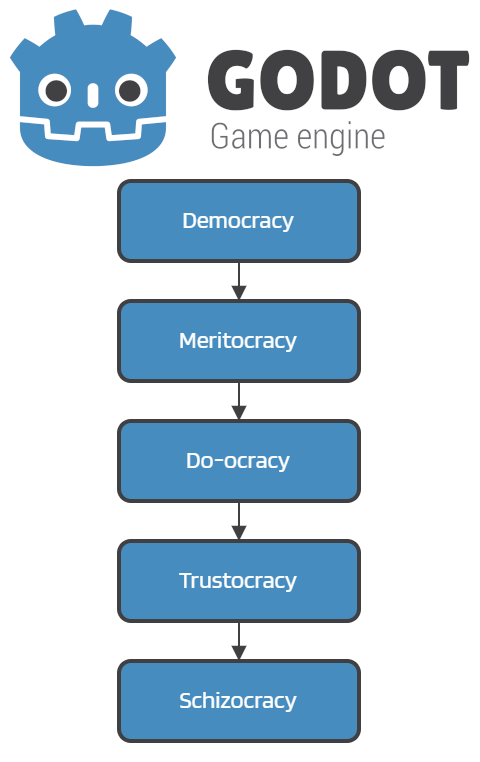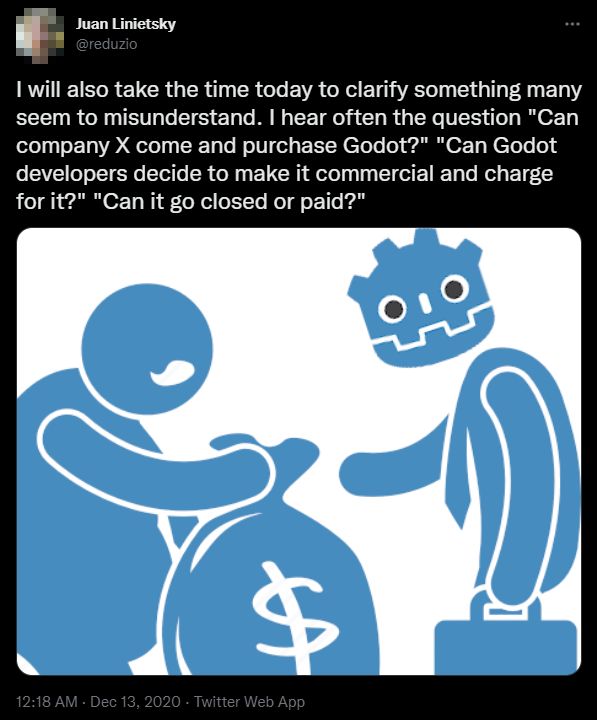Schizocracy
Godot is not community-driven, because it acts more like a commercial company which gives opportunity for developers to work on the engine for free, with a mixture of approaches used in both open-source and source-available type of projects, especially taking into account Godot leadership’s initiative to found companies that offer commercial Godot services.
Godot’s ambiguity asks for their governance model to be labeled as schizocracy (the “schizo-” translates from Ancient Greek as “I split”):

If Godot doesn’t want this condition to progress, the solutions are quite simple:
- stop giving a false impression that Godot is democratic or meritocratic;
- do not present Godot as community-driven, but rather community-informed;
Alternatively:
- declare that Godot is a commercial company that uses community feedback and uses open-source to accept work from others.
There’s no need to hide the fact that Godot leadership wants to make money with Godot, because, as the old Godot’s saying goes: “Man’s gotta eat”. However, for some reason, Godot leadership wants to “clarify” that they don’t want to make money again and again. Why is this needed?

Optimistically speaking, Godot is de-facto community-informed, not community-driven. But realistically speaking, given above contradictions, Godot’s governance can be explained in another way, which you’ll find out by the end of reading this book.
It’s not just semantics, as Godot leadership carelessly responds to this. If they choose to keep telling that community is in charge when it’s not, then it will definitely backfire. We’re talking about not meeting expectations of what constitutes community power over decision making. All in all, the success of this is totally determined by community’s trust in Godot leadership. Even then, their success is not necessarily community’s success.
Conclusion
The cornerstone of Godot’s existence has been hinging on the notion of it being a “pure” open-source project. Simply put, if you were to mention the word “Godot” to Godot followers, the immediate association in their minds would be “Open Source” first, and only secondly as a game engine. However, when Juan and other Godot PLC members decided to provide commercial services through W4 Games, Prehensile Tales, Lone Wolf Technologies, and Ramatak Inc, all under the same person, they can no longer use the “Open Source” label as an ace card.
Although Godot remains open-source, its value as an open-source project has “diminished” to a level more akin to source-available engines. I put the word “diminished” because the entire notion of a tool being open-source or not is questionable since Open Source is not a magic pill, it has the same number of downsides as commercial software, just manifesting in other aspects. What’s important to emphasize here is that Godot’s leadership decision has undermined the trust of their followers, regardless of the fundamental beliefs about the perceived benefits and downsides of Open Source.